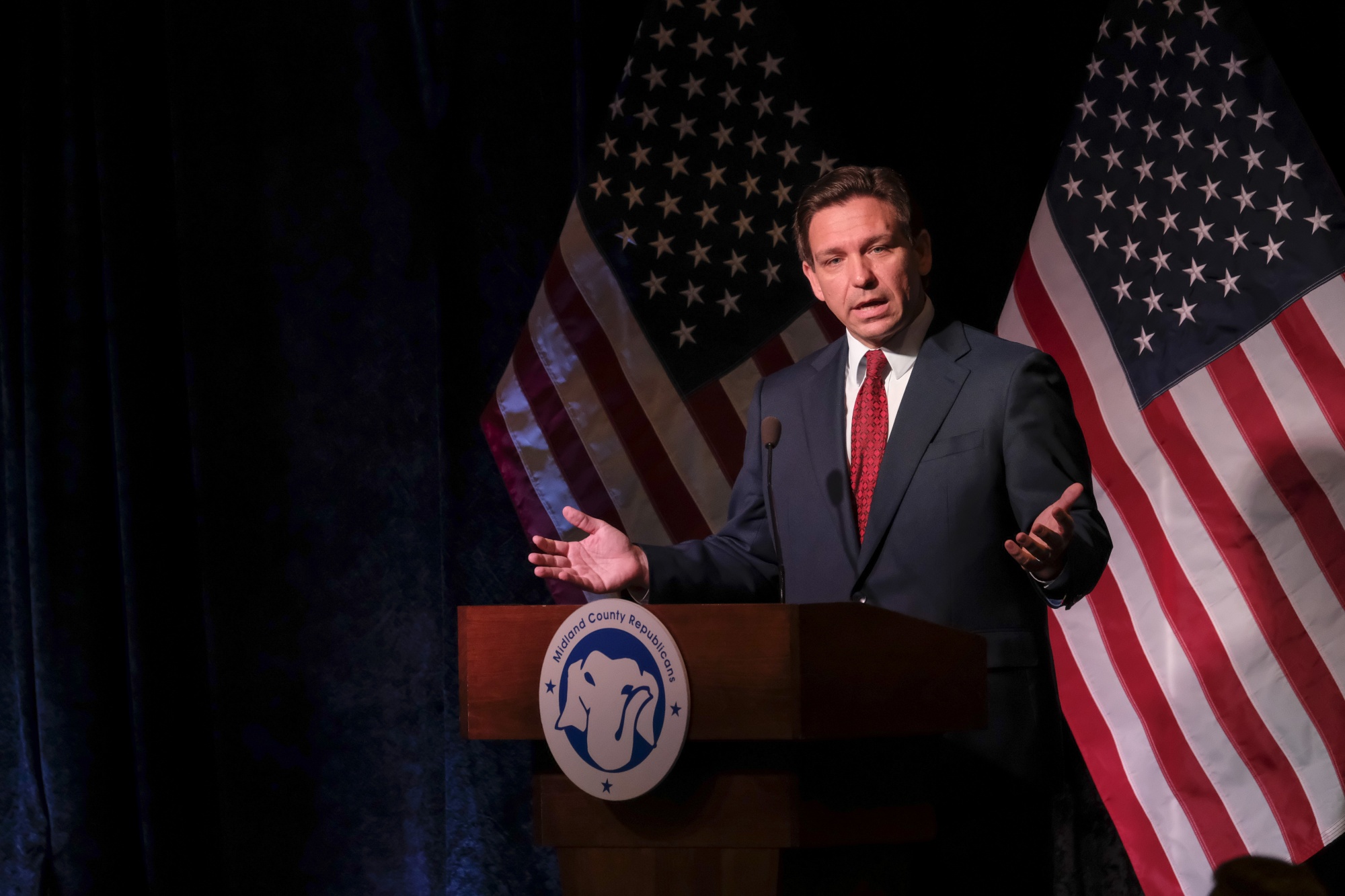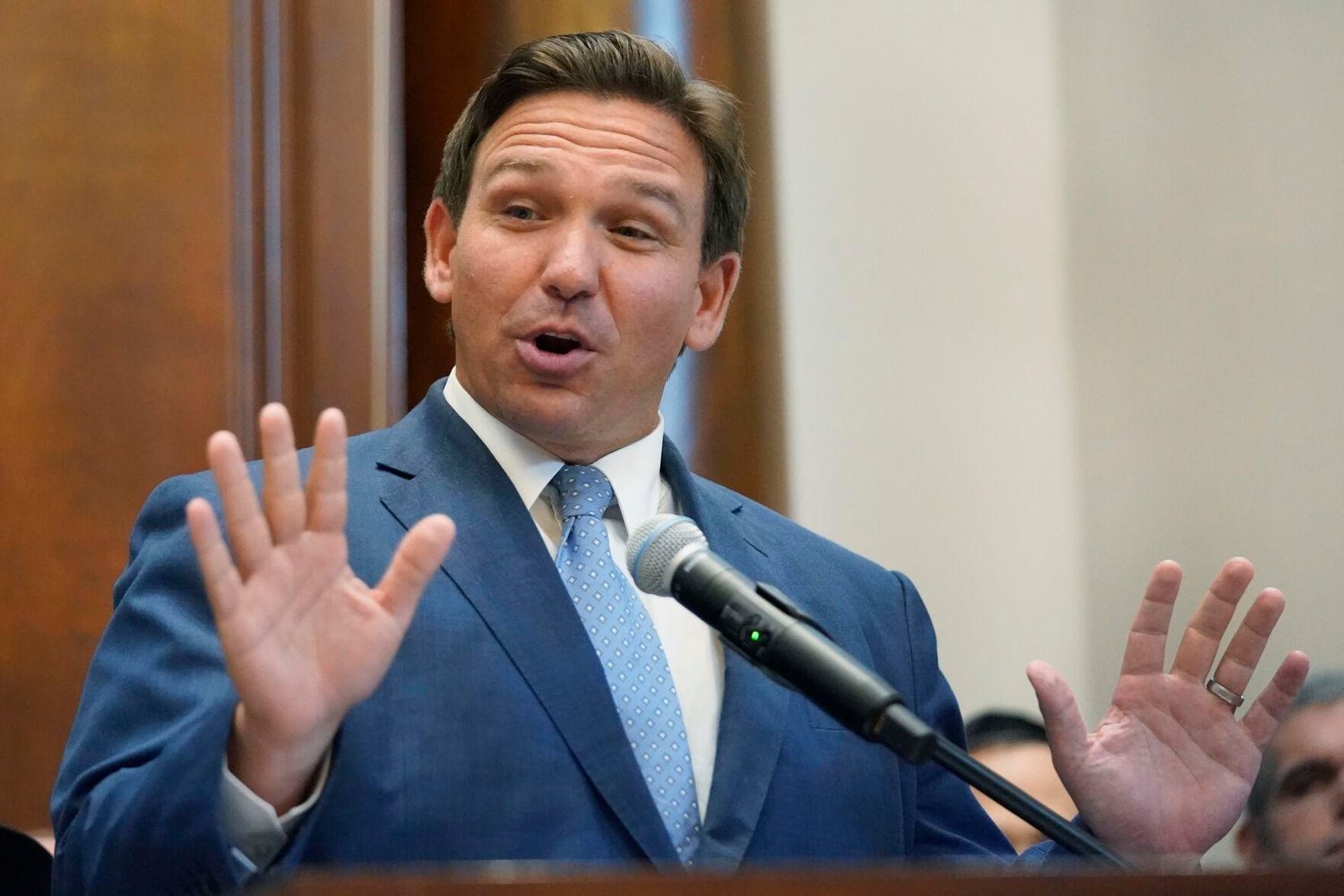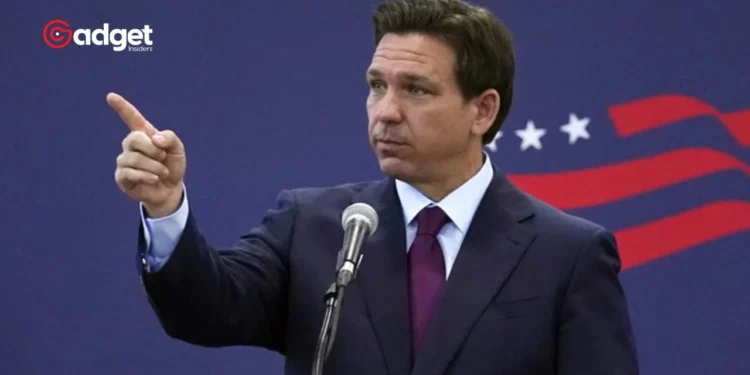Amid a backdrop of intense political debate, Florida faces criticism for its approach to children’s healthcare, triggering concerns and protests from various quarters about the state’s commitment to its young residents’ well-being. The core of the issue lies in the decision by Governor Ron DeSantis’s administration to challenge a federal law designed to protect children’s health insurance coverage, leading to significant disenrollment numbers that have shocked communities across the state.

A Sharp Rise in Disenrollment Raises Alarms
Since the beginning of the year, over 22,500 children have been removed from Florida KidCare, the state’s iteration of the Children’s Health Insurance Program (CHIP), which assists families slightly above the Medicaid threshold. This move has been widely criticized as being in direct defiance of the 2023 Consolidated Appropriations Act, which includes a “continuous eligibility” clause meant to protect children’s access to healthcare by allowing 12 months of coverage following at least one premium payment.

Despite this federal safeguard, the DeSantis administration proceeded to contest this rule in a Tampa federal court, arguing that the federal law unlawfully turns CHIP into an entitlement program, thereby overriding state laws that necessitate monthly premium payments. However, the administration did not pause its policy actions pending the court’s decision, leading to thousands of children losing their coverage in recent months. The Florida Health Justice Project indicates that the pace of removals has been consistent and alarmingly high, with thousands removed monthly since January.
Political and Social Repercussions
The situation has escalated into a broader social issue, attracting criticism from political figures such as Democratic U.S. Congresswoman Kathy Castor. She has voiced strong opposition to the state’s actions, labeling them as “enormously cruel” and detrimental to the welfare of sick children, who are ostensibly being used as pawns in a broader political strategy. Castor’s comments underscore the tension between federal and state policies and the real-world impact on families who suddenly find themselves without necessary medical coverage.
In one particularly poignant example shared by Castor, a family described their ordeal with a toddler born prematurely and requiring extensive medical care, including surgeries and 24-hour nursing, who was among those who lost coverage due to these policies. This has led to severe personal and financial strain on the family, illustrating the human cost of the ongoing legal and political battles over healthcare.
🚨 BREAKING: Florida Governor Ron DeSantis says the world was much MORE peaceful under former President Donald Trump.
“Is the world more peaceful than it was when Trump was President? Not even close! Biden's been a failed leader.”
“It's an uphill battle because of Biden's… pic.twitter.com/q6G2PTC4bT
— Proud Elephant 🇺🇸🦅 (@ProudElephantUS) April 30, 2024
Legal and Expert Perspectives
Legal experts and healthcare advocates have also weighed into the debate. Joan Alker, a prominent figure in child healthcare policy, noted that while Florida is not alone in the rapid disenrollment of children from Medicaid, the state’s aggressive stance on CHIP disenrollment appears to contravene federal law. She pointed out that Florida’s approach could potentially set a precedent for other states, depending on the outcome of the legal challenges.
Florida’s agency for healthcare administration has defended its position, arguing that allowing disenrollment for non-payment of premiums is essential for maintaining the integrity and sustainability of the program. They also highlighted recent legislative changes that theoretically increase income eligibility for CHIP, suggesting a commitment to expanding coverage.

Florida’s Healthcare Crisis
The unfolding situation in Florida represents a critical juncture for state and federal interactions over healthcare policy. As legal proceedings continue, the outcome will likely have significant implications not only for the thousands of children currently without coverage but also for the broader framework of how healthcare is administered and regulated across the United States.
This ongoing controversy not only highlights the complexities of healthcare legislation but also the profound effects such policies have on the lives of the most vulnerable. As the state navigates these troubled waters, the eyes of the nation remain fixed on Florida, watching to see how it will balance the scales of health policy, fiscal responsibility, and human compassion.










